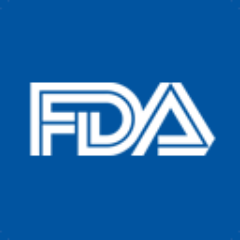With the comment period of the U.S. Food & Drug Administration’s (FDA) proposed Tobacco Products Manufacturing Practice (TPMP) rule set to end today, both Cigar Rights of America (CRA) and the Premium Cigar Association have submitted comments on the U.S. Food & Drug Administration’s (FDA) proposed Tobacco Products Manufacturing Practice (TPMP) rule. Under this rule, the FDA would establish regulations that target cigar manufacturing factories and pre-industry facilities both domestic and foreign.
The FDA announced its proposed TPMP rule on March 10. As with all proposed regulations, the proposed rules went through a public comment period of 180 days, which is required under the rulemaking process. This was extended one month to October 6, 2023.
CRA
CRA highlighted the following points in its comments submission.
- CRA pointed out that the FDA’s proposal would likely require sweeping capital investments and threatens to bankrupt many small manufacturers. For domestic tobacco manufacturers alone, FDA estimates one-time costs of $39 million and $73 million and between $15 million and $56 million in recurring annual costs.
- CRA has also pointed out that the FDA failed to adequately analyze the costs to small businesses, as required by the Regulatory Flexibility Act. The Agency also did not attempt to provide basic support to industry for compliance with any final provisions. Specifically, CRA pointed out the proposed rule’s lack of guidance for businesses and the fact that the proposed rule sets forth a pharmaceutical-grade production standard, which is unrealistic for artisanal, handmade products grown outdoors using processes that have been established over centuries without contamination issues.
- CRA has taken the position that the FDA’s proposal is not supported by science. Although the Agency suggests that its burdensome requirements will prevent human illnesses, it identifies almost no illnesses linked to manufacturing issues for any tobacco product – and no illnesses at all associated with premium cigars.
- CRA has pointed out the proposed rule lacks a proper environmental impact assessment. In the proposal, the FDA implies that they are likely to require significant testing requirements that could impact the environment. Yet, they fail to provide a formal Environmental Assessment or Environmental Impact Statement. The failure to issue a proper environmental analysis and address water, soil, and pest-mitigation measures that the FDA implies it will require will significantly impact foreign manufacturing facilities and create needless technical barriers to trade.
PCA
The PCA has highlighted that the FDA should remove non-premium cigars and pipe tobacco from the proposed rule should the agency move forward with the regulation. Although Premium Cigars are presently exempt from FDA regulatory efforts, PCA has noted to the FDA that a new public comment period would be needed should the regulatory status change in the future.
PCA highlighted the following points in their comments submission.
- PCA contends that the FDA has failed to demonstrate that the harms that the proposed rule seeks to address exist.
- PCA has taken the position that the FDA has not adequately assessed the proposed rule’s environmental and economic impacts on cigar-producing countries or small businesses.
- PCA has also taken the position that compliance is out of context or inappropriate for non-premium handmade cigars and pipe tobacco.
- PCA stated the FDA has not considered what is involved with enforcing the proposed rule, and further stated it lacks the capacity to enforce this proposed rule.
- PCA contends that the misapplication of the proposed rule to non-premium handmade cigars and pipe tobacco Is not remedied by proposed variances or exemptions.
The PCA also pointed out that it referenced the Small Business Administration Office of Advocacy’s official comment, which detailed the shortcomings of the FDA’s proposed rule with respect to the Regulatory Flexibility Act. In July, PCA hosted a meeting with the SBA Office of Advocacy to discuss the impacts of the proposed rule and the FDA’s “routine negligence” to concerns of tobacco-related small businesses in rulemaking processes. Whenever an agency undertakes a new major regulatory change, the law requires that the holistic effects be studied and, specifically, that accommodations be considered for small businesses.
At the time the PCA announced its comment submission, PCA Executive Director Scott Pearce commented, “Good governance requires a willingness to understand the regulated industry. The FDA is going to continue to run into problems until they shed the notion that all tobacco products are the same.”





